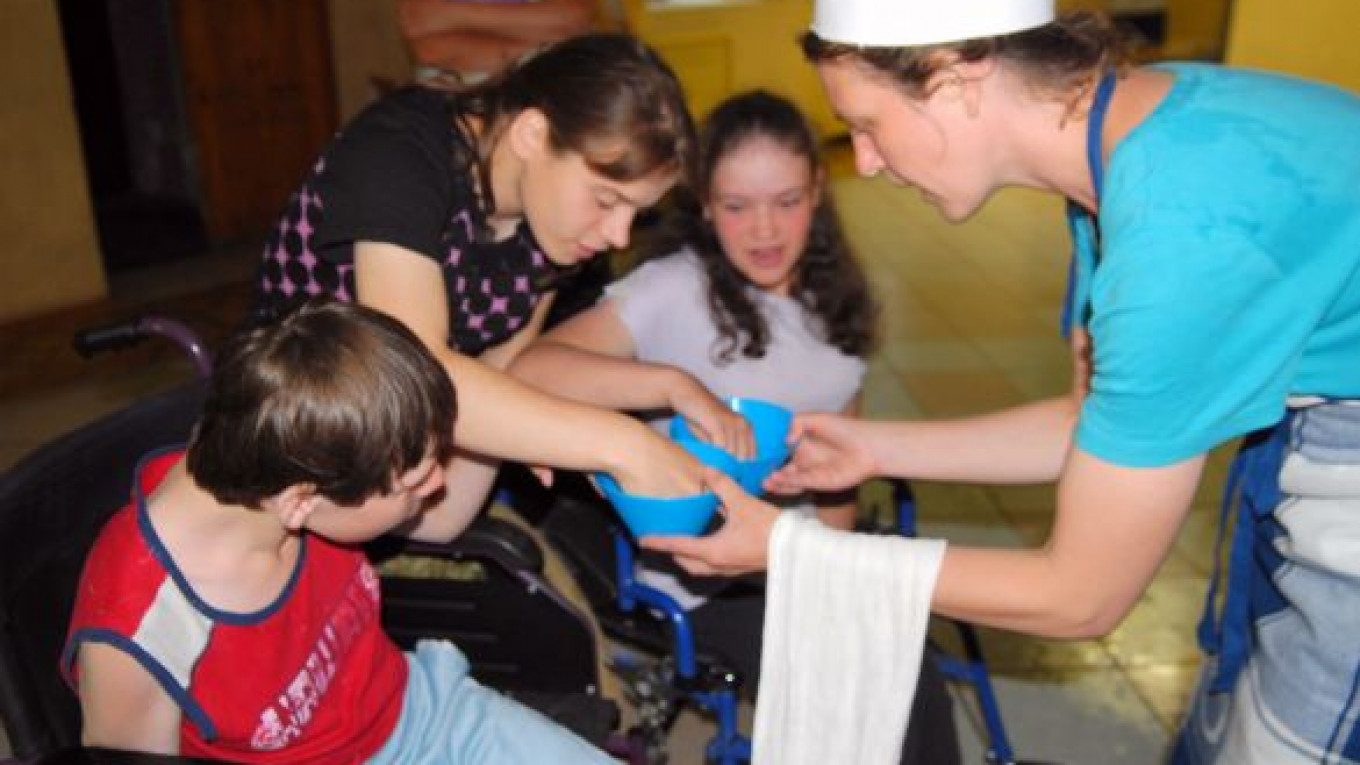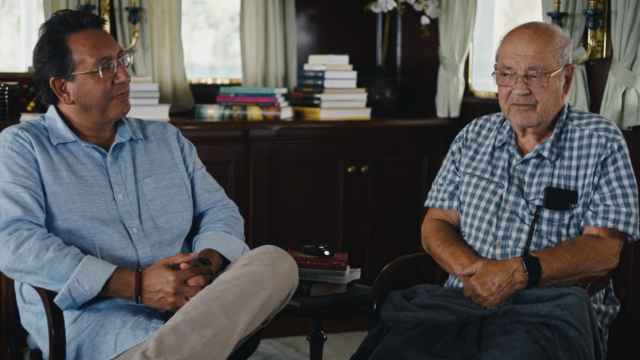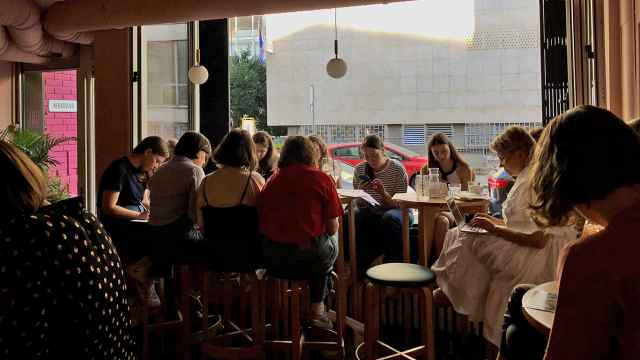Georgia Williams is an American-British expat and founder of the Russian Orphan Opportunity Fund, or ROOF — a children's charity seeking to educate and enable "Russia's forgotten children." Founded in 1997, ROOF runs several projects throughout Russia including educational summer camps at orphanages in the Pskov and Moscow regions. It tries to improve the overall academic and social welfare of Russian youngsters growing up in state institutions.
Q : How did ROOF come into being?
A: I graduated in economics from Princeton in 1993, and like most graduates in the field I found myself a job in financial services — in my case strategy consulting in the investment banking industry. Among other things, I ran up against some ethical considerations that I just couldn't handle, so I sort of ran away from that world and moved to Moscow in 1996 and worked for a bank for about a year. In December 1997, I quit my job at the bank because the ROOF project was getting going, and I really wanted to plough my time into it. Our first orphanage education program opened in 1998.
Q: What were the initial challenges to starting the project?
A: It was something very new for a nongovernmental organization at the time to be just a group of interested volunteers and teachers coming in from outside the state system to offer their services. Everybody was completely convinced that we had some ulterior motive or that we were doing something religious. Completely untrue. What we saw was children who were undereducated and teachers who were underpaid. We could actually find a small wage that was better than what these teachers were getting paid in schools and could hire the best teachers and actually send them in ourselves to teach.
Q: Has ROOF's mission changed over the years?
A: Originally our mission was only educational, but as we worked with the children in these orphanages we found out more about their challenges and difficulties in life. I would say now that the mission has changed and is educational in a broader, formational sense. We seek to broaden horizons instead of just improving poor academic performance in core subjects — which of course we still do. It's basically coming and meeting each child where they are and trying to enable them in every single way that we can.
Q: What is the level of expat involvement in ROOF?
A: Expat involvement is high. We not only have a team of active expats working in Russia right now but a mixture of nationalities on the board. We also aim to be seriously cross-cultural, which I take to mean that expats seek to learn from Russians and vice versa. We're aiming for a paradigm of avid readiness to learn from one another so that we can get the best of Western and Russian cultures. We're looking to promote both the best of traditional Russian values and virtues while hopefully bringing our own Western strengths into the equation too.
Q: How, in your point of view, do Russian and Western ideas of charity relate to one another?
A: This is a very fascinating question, as it seems to me that in Russia there are two competing views on charity. There is the very Russian idea of miloserdiye which is deep, personal charity and very spontaneous. On the other side is the idea of blagotvoritelnost, which is much closer to our usual Western idea of charity and is basically doing good works, and tends to be something that is more planned and structured. In Russia, these two ideas compete and try to come together all the time. The culture of charity here is trying to develop and wants to grasp and incorporate the best of both, to try and fold them together. We Westerners sometimes tend to be too preachy and don't realize that there is a lot of indigenous, native wisdom that we could learn from.
Q: How can people get involved with your work?
A: People can write to us at Volunteer@roofnet.org, or they can write to me personally at Georgia@roofnet.org. We're going to run two summer camps this year: one in the Pskov region and one in the Moscow region for the children of two different orphanages. We'd be keen to hear from anyone who wishes to spend time volunteering at these camps, which will be running from July 1 through August 15. We also have a growing number of volunteer opportunities in Moscow orphanages and are looking for volunteers to join us on frequent trips to an orphanage in the Pskov region throughout the year. We're also always very keen for donations, especially right now as ROOF is in a growth phase. We have projects that are waiting to open and expand if funding can be found. Most urgently, funding is needed for immediate expansion of our successful Abilitation Center program, a program to help teens who face the fate of a lifetime of institutionalization get out of the system and live in society.
For more information visit . Prospective volunteers and donors should contact Volunteer@roofnet.org or Georgia@roofnet.org. A small film on ROOF's work can be seen at
A Message from The Moscow Times:
Dear readers,
We are facing unprecedented challenges. Russia's Prosecutor General's Office has designated The Moscow Times as an "undesirable" organization, criminalizing our work and putting our staff at risk of prosecution. This follows our earlier unjust labeling as a "foreign agent."
These actions are direct attempts to silence independent journalism in Russia. The authorities claim our work "discredits the decisions of the Russian leadership." We see things differently: we strive to provide accurate, unbiased reporting on Russia.
We, the journalists of The Moscow Times, refuse to be silenced. But to continue our work, we need your help.
Your support, no matter how small, makes a world of difference. If you can, please support us monthly starting from just $2. It's quick to set up, and every contribution makes a significant impact.
By supporting The Moscow Times, you're defending open, independent journalism in the face of repression. Thank you for standing with us.
Remind me later.






